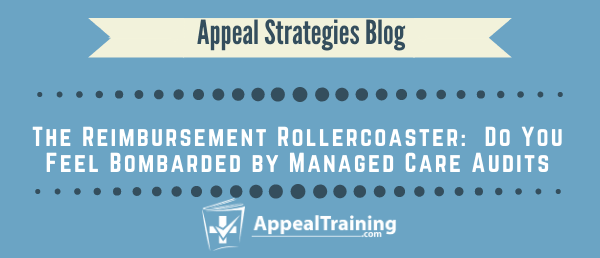About half of the U.S. adult population has at least one of ten chronic conditions. One in four adults has multiple chronic conditions. Further, About 34 percent of Medicare beneficiaries are enrolled in a Medicare Advantage plan this year.
These statistics add up to a number of challenges for medical billing professionals. Managed care audits often focus on the many documentation and reimbursement rules which apply to these Medicare Advantage patients with chronic conditions. Further, these patients are a costly group to treat when Medicare Advantage audits result in reimbursement adjustments.
Christine Hall, CHC, CPC, CPMA, CRC and Certified AAPC Instructor addresses these complexities in an AppealTraining.com webinar available for free this month.
“Payers attention is always drawn to high cost patients,” Hall said in the presentation.
Hall explains how critical it is for providers to capture HEDIS measures related to patients with chronic conditions in order to bill correctly under the Medicare Advantage Value-Based Reimbursement model. HEDIS measures also allow providers to initiate early interventions which CMS expects will ultimately drive down costs. However, failure to correctly document the chronic condition can trigger costly Medicare Advantage audits.
Hall covers some of the critical aspects of Medicare Advantage billing, including capturing diagnoses and utilizing the Annual Wellness Visit to update/review current diagnoses. She also covers how to effectively use the acronym MEAT for provider documentation training. MEAT stands for:
• M – Monitoring signs, symptoms, disease progression, disease regression
• E – Evaluating test results, medication effectiveness, response to treatments
• A – Assessing/Addressing ordered tests, discussion, review records, counseling
• T – Treating medications, therapies, other modalities




Leave A Response